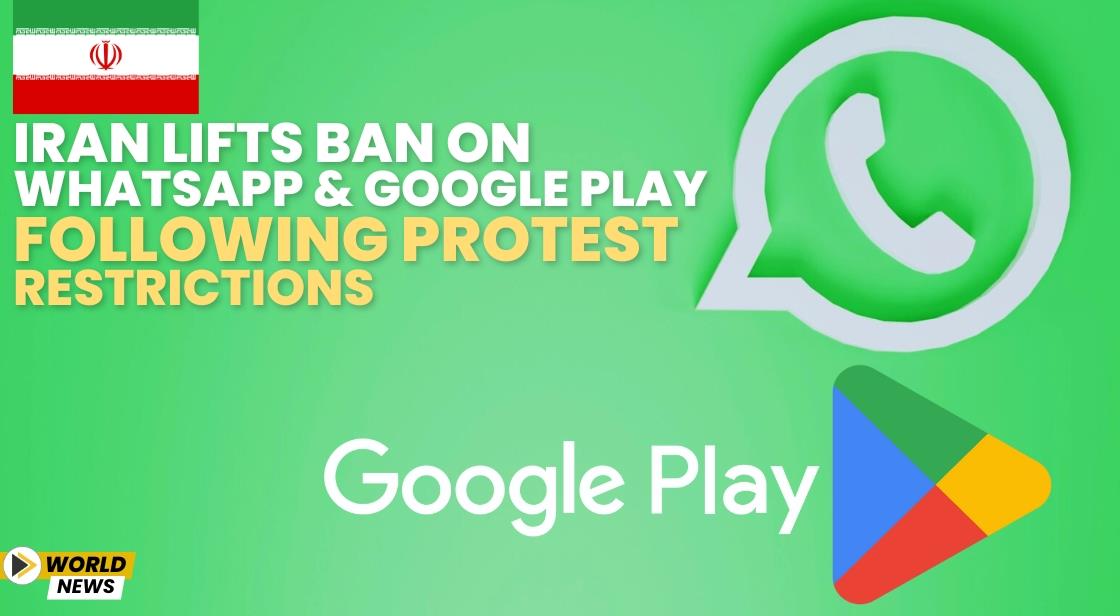Iran Lifts Ban on WhatsApp and Google Play Following Protest Restrictions

News Synopsis
In 2022, the Iranian government imposed a ban on WhatsApp and Google Play amidst widespread protests triggered by the death of a woman detained by the morality police for allegedly violating the country's strict dress code. This event marked a significant period of unrest in Iran, with public dissent intensifying over issues of freedom and governance.
Decision to Lift the Ban
On Tuesday, Iran announced the lifting of the two-year ban on WhatsApp and Google Play, according to the state-run IRNA news agency. The Supreme Council of Cyber Space, led by reformist President Masoud Pezeshkian, made the decision during a meeting. This step aligns with Pezeshkian’s promise to reduce restrictions on social media platforms as part of his broader reformist agenda.
A Step Toward Digital Freedom
Iran's telecommunications minister, Sattar Heshemi, expressed optimism about the move in a post on X (formerly Twitter). Heshemi referred to it as a "first step" toward lifting broader restrictions on internet access, hinting at the possibility of unblocking additional platforms in the future.
Mixed Access Across Devices
Following the announcement, users across Tehran and other cities reported mixed access to WhatsApp and Google Play. While many were able to access these services on computers, mobile phone access remained restricted. This uneven accessibility indicates that the full restoration of services may take some time.
The Popularity of WhatsApp in Iran
Despite restrictions, WhatsApp has maintained its position as the third most popular messaging platform in Iran, following Instagram and Telegram. Its ease of use and broad functionality have made it a preferred choice for communication among Iranians.
Protests and the Context of the Ban
The 2022 ban coincided with mass protests that erupted over the death of the detained woman. These demonstrations represented a broader discontent with government policies and led to a significant crackdown by security forces. By 2023, the protests had subsided after the government’s heavy-handed response, which resulted in the deaths of hundreds and the imprisonment of thousands.
The Role of Proxies and VPNs
Although Iran has frequently blocked social media platforms, its citizens have continued to access them using proxies and virtual private networks (VPNs). This resilience underscores the Iranian population's determination to stay connected despite governmental restrictions.
Future Prospects for Social Media in Iran
The lifting of the WhatsApp and Google Play ban is a hopeful sign for the future of internet freedom in Iran. However, it remains to be seen whether additional platforms will be unblocked and whether the government will adopt a more open stance toward digital communication in the long term.
Conclusion
The lifting of the ban on WhatsApp and Google Play marks a pivotal moment in Iran’s journey toward digital freedom. This decision, led by reformist President Masoud Pezeshkian, demonstrates a willingness to ease restrictions and respond to public demands for greater access to communication tools. While challenges remain, such as inconsistent access across devices and a history of tight internet controls, this move offers hope for a more open digital landscape in the country. It also reflects the resilience of the Iranian people, who have consistently found ways to stay connected despite governmental restrictions. The future of social media access in Iran now depends on continued reforms and the government's ability to balance security concerns with the rights of its citizens.









